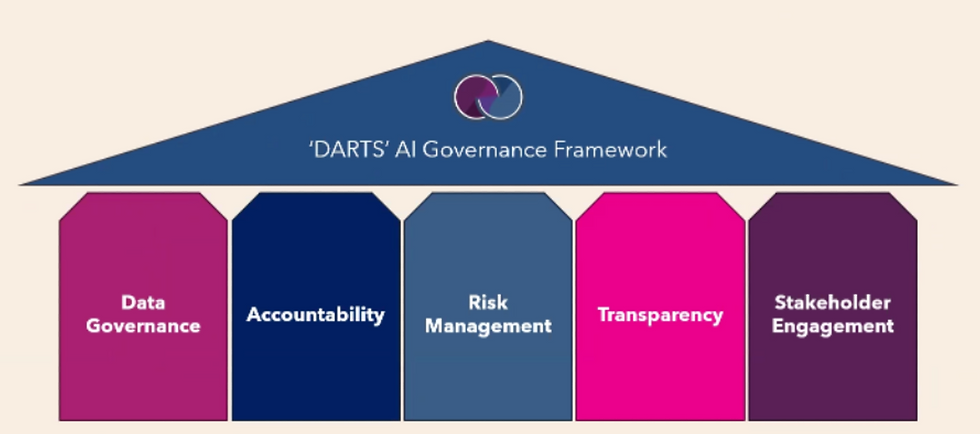💻 Lessons in AI for Femtech Startups in Asia
- lindsaydavissg9
- Sep 29, 2025
- 3 min read
Updated: Dec 25, 2025
Human Values in AI
Artificial intelligence (AI) is transforming healthcare globally, and its application in femtech brings groundbreaking potential. From powering more accurate diagnostics to enabling personalised care, AI can help close gaps in women’s health. However, this technology also raises questions around bias, inclusivity and data privacy.
The USA is firmly in the lead regarding its proportion of AI companies with a femtech focus (35%), with the EU holding the second place (~25%). Asia has ~8%, with major companies placed in India.* Frost & Sullivan records the most femtech companies using AI are outside of SEA, led by the USA, UK, Israel, then India.
This mini-guide, created in partnership between CANDA Consulting and FemTech Association Asia, provides Lessons in AI for femtech startups as a starting point for navigating AI responsibly and effectively for application in women’s health. After all, the tool is only as good as the human touch applied.
*Source: FemTech Analytics, AI in FemTech, 2023
Challenges for Femtech
For every potential upside, there are AI challenges that aren’t being advertised. From hallucinations and deception to the ever-growing landscape of complex regulations and requirements, femtech startups need to adopt a scalable management approach to navigate the opportunities and challenges.

Lesson 1: Regulatory & Legal Compliance
FemTech startups must ensure AI systems comply with local and international laws (e.g., EU AI Act 2024, privacy, discrimination, contract law). Since women’s health data is highly sensitive, compliance with data privacy regulations (e.g. PDPA in Singapore) should be prioritised to protect patient trust and avoid penalties. Use-cases deemed to be higher-risk, such as those in the health industry, may also attract a higher compliance burden.
“Given that about 80 percent of AI activity is spent on basic data processing, having an adequate data structure and governance will accelerate the ability to adopt AI.” (Kearney, 2020)
Lesson 2: AI Ethics & Responsible Principles
Consider frameworks that promote transparency, accountability, fairness, and bias mitigation. In healthcare and women’s health contexts, ensuring AI systems do not reinforce gender, cultural or socioeconomic biases is critical for equitable outcomes.

Lesson 3: Data Quality, Security & Privacy
AI outputs are only as strong as the input data. Femtech startups must assess:
Accuracy, reliability and robustness of training data.
Secure handling of sensitive health data to prevent breaches.
Guardrails for explainability so clinicians and users understand why AI made certain recommendations.
5 Steps to More Inclusive AI Systems:
Use diverse & representative data sets to train AI systems.
Improve transparency of algorithms in AI systems.
Ensure AI development and research teams are diverse and inclusive to avoid blind spots.
Adopt strong ethical frameworks.
Integrate gender-responsive policies.
Source: UN Women, Zinnya del Villar, 2025
Lesson 4: Alignment with Standards & Market Expectations
Adopt recognised frameworks (e.g., ISO/IEC 42001, NIST AI RMF) to align with industry best practices and increase credibility with partners, regulators and investors. Consider market participation rules: insurers, regulators and customers increasingly expect compliance with ethical AI frameworks before adoption.
Lesson 5: Enterprise Risk & Governance
AI introduces new risks (algorithmic errors, misdiagnosis, hallucinations) while amplifying existing enterprise risks. Femtech startups should implement AI risk governance systems, defining policies for procurement, monitoring, and accountability. This includes planning for human oversight in clinical decision-making to ensure safety.

Examples: AI Use by Femtech Startups in Asia
Hati Health (Holistic Health): Profile-builder providing personalised healthcare plans - i.e. proactive follow-up and prescription scanning.
Hormony (Peri/Menopause): Cycle tracking and hormonal health at-home testing.
Ovy Health (Fertility): Cycle tracking and ovulation prediction.
Biorithm (Pregnancy): Prenatal tracking, maternal health monitoring and identification of irregularities.
FathomX (Oncology): Analysis of radiological images; improved and more efficient diagnostics for breast cancer.
HiCura (Medical Device): Epidural anaesthesia.







Comments